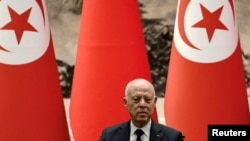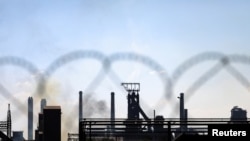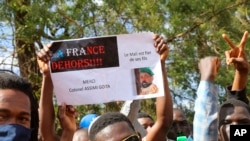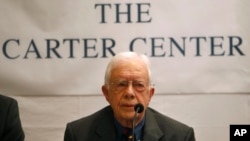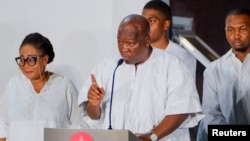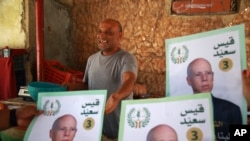Business and Technology
Euro Slips Below the Buck
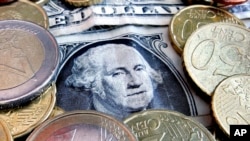
The euro hit a new 20-year dollar low Monday on energy crisis fears, after Russia said it would not restart gas flows to Germany and effectively most of the continent.
The euro sank Monday to $0.9878, its lowest since December 2002, despite expectations the European Central Bank will hike interest rates again Thursday to combat soaring inflation.
The shared eurozone unit has collapsed by about 13 percent against the dollar since the start of the year, hit also by the US Federal Reserve's more aggressive monetary tightening.
European stocks tumbled Monday while natural gas prices spiked almost a third, while oil added to strong gains as OPEC and its Russia-led allies decided at a meeting Monday to lower crude output in a bid to lift prices.
The news intensified an energy crisis caused by Europe's sanctions on Moscow for its invasion of Ukraine in February.
Investors are fearful of an energy supply crunch during the peak-demand northern hemisphere winter.
That could potentially lead to a painful recession.
"Russia's decision to turn off Europe's gas hangs over the continent like a grim shadow ahead of winter," said AJ Bell investment director Russ Mould.
At the same time, governments worldwide are grappling with the impact of rocketing domestic energy costs.
Germany on Sunday unveiled a new 65-billion-euro ($65-billion) package to help households cope with soaring prices, and eyed windfall profits from energy companies to help fund the move.
That took Berlin's total relief to almost 100 billion euros since the start of the Ukraine war.
See all News Updates of the Day
Africa News Tonight: DRC, US in talks on trade and security, concerns of civil war risk in South Sudan, tariff talk rattles stock markets
Africa News Tonight: Summit focuses on Africa energy, WFP warns of hunger in southern Africa, UNICEF says fighters in Sudan assault children
Africa News Tonight: DRC president rejects talks with M23, Trump addresses Congress, US auto tariffs may shake up Nigerian car market
Africa News Tonight: Tunisia breaks with IMF, Nigeria reviews anti-terrorism plans, Israelis mourn deaths as ceasefire deadline approaches
Africa News Tonight: Debt relief on G20 finance ministers’ agenda, US risks losing business in Africa, MSF closes operations in Sudan camp
Africa News Tonight: Kenya works to block mpox spread, Nigeria moves closer to BRICS, China seeks to build support in Africa for its goals
Africa News Tonight: MSF leaves Khartoum hospital, Somalia, Ethiopia mend ties, steel maker quits South Africa in face of cheap imports
Africa News Tonight: Fears grow about freed prisoners in Syria, nations seek new defense strategy, Seychelles sees great-power competition
Africa News Tonight: FBI broadens probe in New Orleans attack, African nations struggle with debt, Carter effort led to landmark peace deal
Africa News Tonight: Carter funeral plans underway, Guinea opposition will not recognize military rule, Apple denies using conflict minerals
Africa News Tonight: Mahama officially declared Ghana winner, no clear leadership in Syria, South African clothing tariffs please unions
South Sudan in Focus: Juba road ban worries boda boda drivers, Kenyan deputy president faces impeachment, data helps improve public services
Africa News Tonight: Saied dominates in Tunisia election, China drives into South Africa auto market, Kenyan runner suspended over drug test
Africa News Tonight: Displaced communities at risk of mpox, Tunisia’s Saied shakes up cabinet, sun-powered tractor debuts in Malawi
Restaurant with Robot Services Causes Excitement in Nairobi
In Nairobi, a new restaurant is generating business and buzz – not just because of the food, but because of the staff. Robots serving dishes is the main attraction for diners who flock to the Robot Café. Juma Majanga reports from Nairobi, Kenya.







